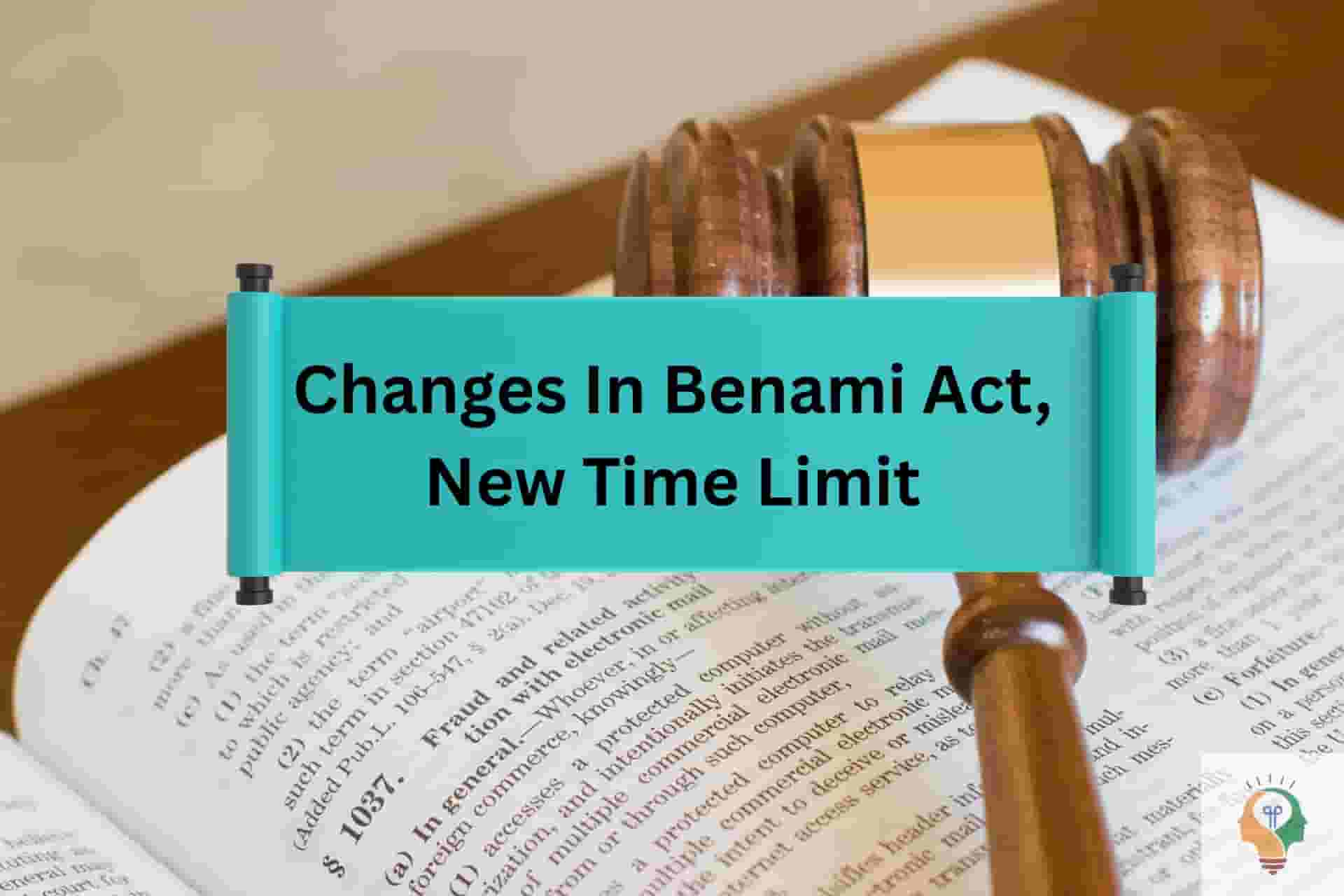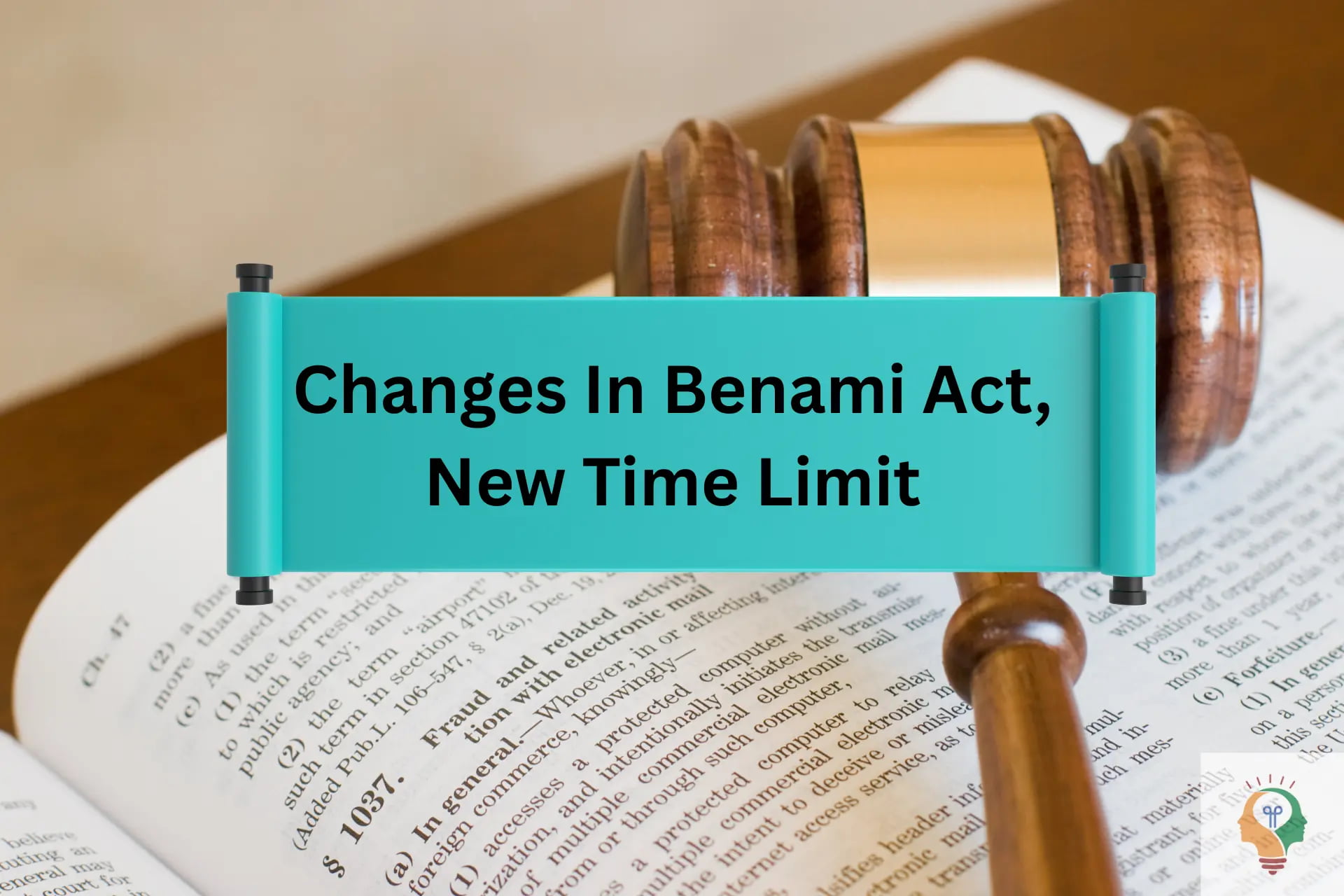Budget 2024: Changes In Benami Act
Updated: 10-12-2025 at 5:30 PM
1k


One of the persistent problems in the Indian legal system is the issue of benami transactions, where an individual purchases a property in someone else’s name for illicit activities, such as money laundering. To minimise this criminal activity, the government of India issued an act called the Prohibition of Benami Transactions Act, 1988. The sole aim of the act was to legally define Benami transactions; however, the act still had quite a lot of loopholes.
To address the loopholes, the Indian government introduced some changes in the act and issued the Benami Transaction Amendment Act, 2016. The new act comprises updated definitions, detailed procedures for prosecution and penalties, and other such changes to effectively reduce the instances of illicit property transfers.
Read the article to learn more about the amended act, including information on its various sub-sections, like Section 3(2) of Benami Transaction Act or Section 2(9) of Benami Act, and answers to popular questions like, ‘How to identify Benami property?’.
Overview
The table below summarises some key details about the Benami Property Act that one should know.
| Name of the act | Benami Transactions Act |
|---|---|
| Originally drafted in | 1988 |
| Amended act | Benami Transaction Amendment Act, 2016 |
| Objective | To reduce and eventually eradicate the instances of money laundering, prevent benami land holdings, and ensure transparency in property ownership |
Read More: PM Modi To Distribute 6.5 Million Property Cards Under SVAMITVA Scheme
What Are Benami Transactions?
Benami transactions have always confused legal systems and the government, especially in India. To entirely abolish Benami transactions, the government of India introduced the Prohibition of Benami Transactions Act, 1988, commonly known as the Benami Act.
Benami transactions are defined under Section 2(a) of the Benami Transaction Act, 1988. In these types of transactions, a property is purchased in the name of a person who is not the person paying for the property. Let us understand this with the help of an illustration.
Illustration: A finds a property situated in Delhi and wishes to purchase it. A pays Rs. 5 lakhs for that property; however, he purchases it in the name of his wife, B. This is a benami transaction since A paid for the property, but the property was in the name of B.
Background Of the Benami Transaction Act, 1988
The Benami Transaction Act, 1988, has its roots in ancient India. The literal meaning of the Urdu word ‘Benami’ is ‘no name’, which translates to someone who pays for another person’s property to own the property indirectly. The traces of Benami can be traced back to British rule in India, where they used to procure lands with the help of Benami transactions.
The Benami transactions were first legalised in 1778 in the Gopeekrist Gosain vs. Gungapersuad Gosain case, where the judge concluded that Benami transactions were an old practice in India and would continue to happen unless otherwise stated in the law. This legislation was one of the major disadvantages back then.
However, with the passing of time and the evolution of human minds and judgments, Benami transactions were prohibited with the introduction of the Benami Transaction Act in 1988.
Also Read: Unlocking Rural Prosperity With The SVAMITVA Scheme
What Are The Changes Introduced By The Union Budget 2024?
The various time limits for replying to Notices issued to a ‘benamdar’ or someone who has allegedly been involved in a benami transaction are given under Section 24. The Finance Minister of India, Nirmala Sitharaman, in her budget presentation, proposed changes to Section 24 of this Act.
Let us have a look at what the latest judgments on Benami Transaction Act!
Benami Property
Section 24 (1) of the Benami Act says that, if an initiating officer has enough reasons to believe that a person is a benamidar in respect of a property, he may, after recording reasons in writing, issue a notice to the person to show within the time limit to prove why such property should not be treated as a benami property.
Punishment Under The Benami Act
Section 24(2) of the Benami Transaction Amendment Act says that a copy of such notice should also be sent to the beneficiary owner along with the benamidar, if the beneficiary’s identity is known. A new Section 2A is being inserted in the Act to propose a time limit not exceeding 3 months for filing a reply to the notice.
An initiating officer may provide less time to furnish a notice and may provide an extension in case of a delay; however, such an extension shall never cross 3 months. Previously, no such limit existed, which caused a long pendency of benami cases.
As per Section 24(3) of the Benami Act, initiating officers may provisionally attach the property with the previous approval of the approving authority in a manner as prescribed. This may be done if the officer thinks that the property held benami may be alienated during the period specified in the notice. The property may be provisionally attached, within a period not exceeding ninety days from the last day of the month where the notice was issued.
Read More: What To Know About The Noida Property Registry?
Extended Time
Union Budget 2024 proposes to extend the time limit of ninety days to four months. Section 24(4) of the Benami Transaction Amendment Act says that if a provisional attachment of property was made under section 24(3), the initiating officer shall pass an order either continuing or revoking the provisional attachment within a period not exceeding ninety days. The new budget proposes to extend this time limit to four months.
Section 24(5) of the Benami Act provides that, if the initiating officer passes an order continuing the provisional attachment, he shall draw up a statement of the case and refer it to the adjudicating authority within fifteen days from the date of attachment. To facilitate working, the Budget 2024 seeks to extend it to 1 month.
Difference Between Benami Transaction Act, 1988 & 2016?
The difference between the Benami Transaction Act, 1988, and the Benami Transaction Act 2016, is mentioned below in tabular format:
| Component | Benami Transaction Act, 1988 | Benami Transaction Act 2016 |
|---|---|---|
| Definitions | Definitions with ambiguities | Clear and structured definitions using easy words |
| Administrative staff | No special authorities | Hired special officers, like Initiating Officer, Approving Authority, Adjudicating Authority, and others. |
| Penalties | Less | Hefty fines up to 25% of the property’s market value, along with imprisonment of up to 7 years |
| Enforceable | Weak enforceability | Strong enforceability as the framework is structured and clear |
Conclusion
These time extensions in the Benami Act will help both the government officers dealing with this and the people who are supposed to file replies. The updated Benami Transaction Act 2016 would prove itself to be essential in preventing criminal activities like illicit property-related transactions, money laundering, etc. The amendment also reflects and represents the Indian government’s commitment toward keeping an accountable and transparent environment, especially in the real estate sector.
Stay updated with Jaagruk Bharat to get the latest information on government healthcare schemes and more, and reach out to us via our community page if you have any questions.
Frequently Asked Questions
0
0
1k
0
0
1k Views
0
No comments available





Our Company
Home
About
T&C
Privacy Policy
Eula
Disclaimer Policy
Code of Ethics
Contact Us
Careers
Cancellation & Refund Policy
Categories
Women
Insurance
Finance
Tax
Travel
Transport & Infrastructure
Food
Entertainment
Communication
Government ID Cards
E-commerce
Traffic guidelines
Miscellaneous
Housing and Sanitation
Sports
Startup
Environment and Safety
Education
Agriculture
Social cause
Employment
Disclaimer: Jaagruk Bharat is a private organization offering support for documentation and government scheme access. We are not affiliated with any government body. Official services are available on respective government portals. Our goal is to make processes easier and more accessible for citizens.
All Copyrights are reserved by Jaagruk Bharat